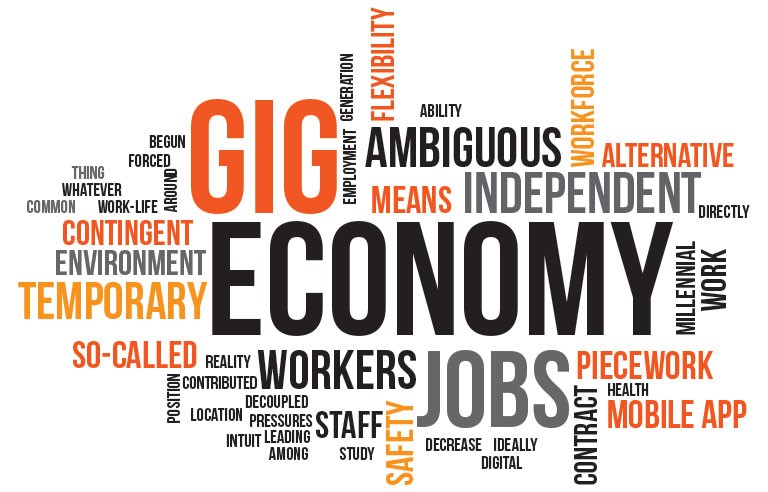Freelancing
Advantages and Disadvantages of the Gig Economy
Learn whether Gig Economy is good or bad for you.
Published
2 years agoon
By
Mario
The term “gig economy,” often referred to as the “sharing economy” or “on-demand economy,” describes the growing tendency of people and companies engaging in sporadic and adaptable labor arrangements. Freelance work, part-time employment, and contract workers fall in this category.
Let’s go through some of the advantages and disadvantages of the Gig Economy and find out why it is important for countries.
Advantages of the Gig Economy
Flexibility
One of the key benefits of the gig economy is that it gives people more freedom over the hours and locations of their employment. For those whose caregiving obligations or other personal commitments make regular 9-to-5 occupations challenging, this can be very helpful.
Additionally, because it may be possible to find work that complements one’s abilities and objectives, the gig economy might give people the chance to pursue their hobbies and passions.
Income Growth
The gig economy offers people the chance to increase their income, whether it is through a full-time job or a side work. People can work many jobs at once in the gig economy and make more money than they would in a typical employment.
Autonomy
Participating in the gig economy gives people more control over their employment. They may decide which jobs to accept and when, providing them a sense of control over their professional lives.
Disadvantages of the Gig Economy
Lack of job security
One of the biggest drawbacks of the gig economy is that there is no guarantee of employment. There is no assurance of consistent employment or income because gig labor is frequently transient or project-based. This might make it challenging for gig workers to develop long-term plans and can result in financial instability.
No Benefits
Benefits like health insurance, retirement plans, or paid time off are usually not provided to gig workers. Due to this, it may be challenging for gig workers to pay for healthcare, develop retirement plans, and take time off when necessary.
Lack of protection
Unlike regular employees, gig workers are not covered by the same laws and rules. This implies that they are not entitled to the same protections and entitlements, such as laws governing workplace safety, minimum wage, and overtime compensation.

The Impact of the Gig Economy on Countries
The gig economy can significantly impact countries positively. Here’s how:
Economic Growth
The gig economy has the potential to boost the economy by raising consumer spending and opening up new job opportunities. Gig workers frequently have more money that is available for spending, which they might use to purchase goods and services and stimulate the economy.
Productivity Gains
Since the gig economy allows for more effective resource allocation, it can also result in greater productivity. Instead of hiring full-time staff, companies can use gig workers for specialized jobs and projects, which can enhance productivity and reduce expenses.
Innovation
The gig economy has the potential to spur new and innovative company models that could upend established sectors. The sharing economy has expanded as a result of, for instance, the proliferation of ride-sharing and home-sharing platforms.

To Sum Up
Overall, there are benefits and drawbacks to the gig economy. It provides flexibility and the possibility of earning more money, but it can also result in a lack of work security, no benefits, and no protection. It’s crucial for people to consider the advantages and disadvantages and decide whether the gig economy is a good fit for them.
ALSO READ: Can You Make Money Flipping NFTs
You may like
-
How Much Money Can You Make as a Freelance Copywriter
-
How to Make Money Online With No Experience
-
How to Start From 0 to $100K As a Freelance Writer | Freelance Writer Career Guide
-
How To Make $40 A Day | 9 Easy Ways Complete Guide
-
13 Best Ways To Make $5000 A Week | Complete Guide
-
18 Relaxing & Slow-Paced Jobs for Beginners

Best Problem-Solving Strategies In Business

How to Start Affiliate Marketing Through Amazon

How to Plan A Wedding On A Budget

10 Reasons Why Budgeting Is Important














